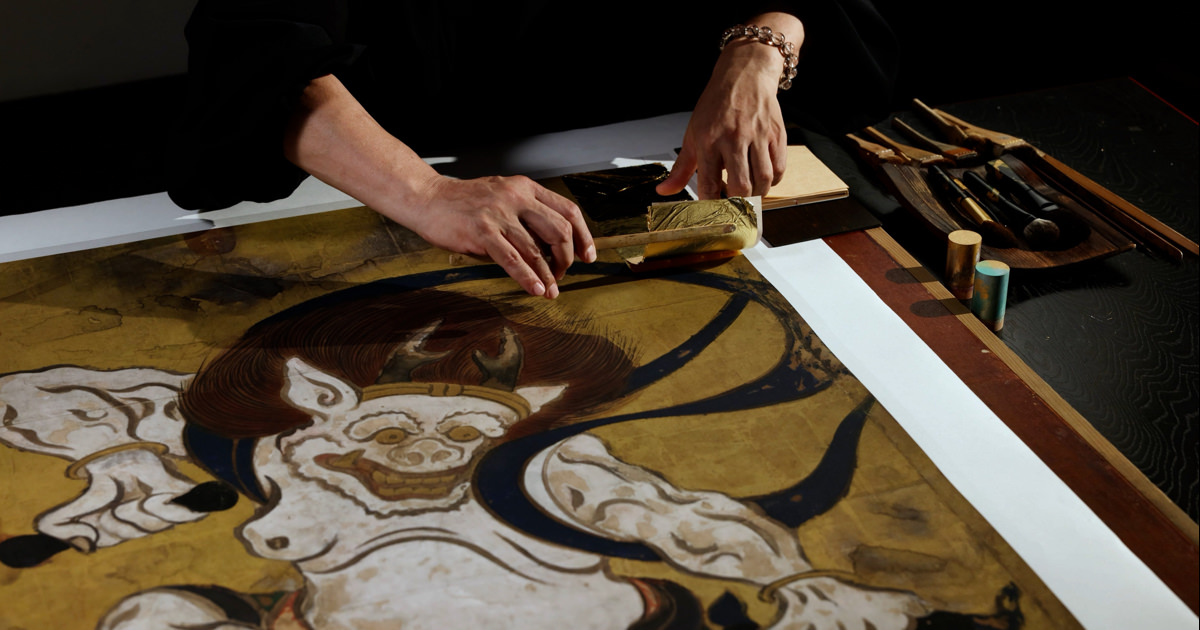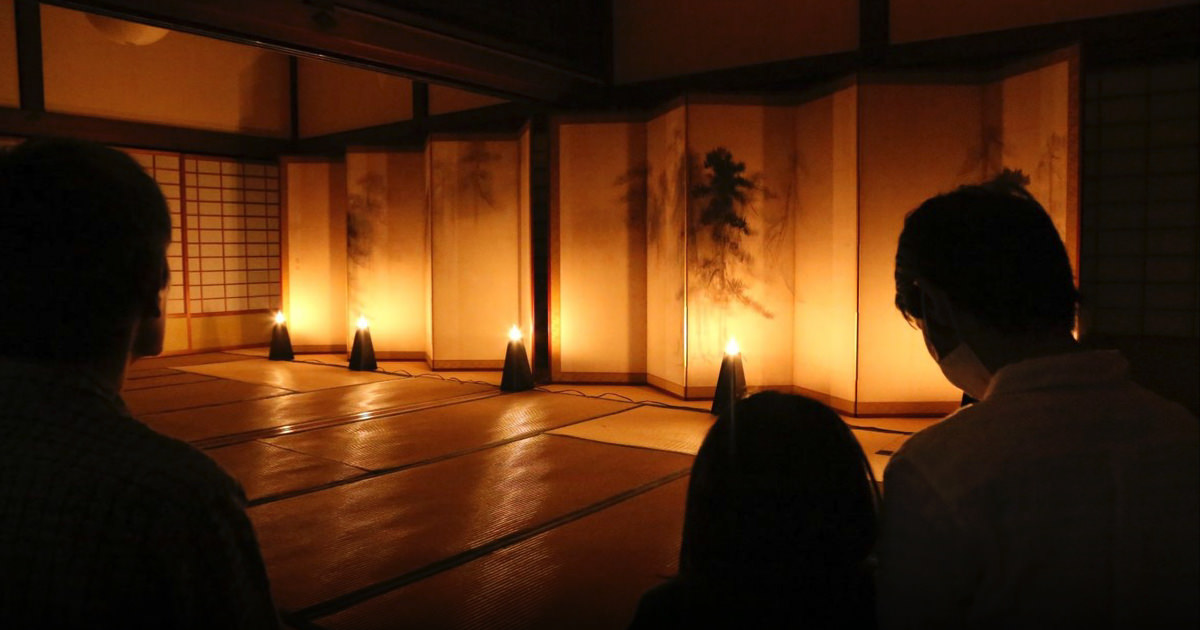Battles of Ichi-no-tani and Yashima, from the Tale of the Heike
High-resolution facsimiles
- Material
- printed, gold on washi paper
- Period of creation
- Tsuzuri Project Stage 11 2017–2018
- Recipient
- Tokyo National Museum(National Institutes for Cultural Heritage)
Original
- Historical era
- Edo (17th century)
- Material
- ink, color, and gold on washi paper
- Medium
- Pair of six-fold screens
- Size
- Each screen H155.4 × W373.8 cm
- Collection
- British Museum
Description
The Tale of the Heike, which depicts the splendor and downfall of the Heike family, is well-known across Japan as it was recited by minstrels to their own accompaniment on the Japanese lute, ever since the tale was written. Because of its popularity, many paintings on folding screens based on this theme were produced from the end of the Muromachi period to the beginning of the Edo period. This work depicts the “Battle of Ichi-no-tani” on the right panel, in which Genji troops led by Minamoto no Yoshitsune made a sneak attack, causing the Heike clan to flee to Yashima in 1184. The left panel shows the “Battle of Yashima”, in which Minamoto no Yoshitsune raids the Heike again the following year, in 1185, and chases them out to sea. The combination of the Battles of Ichi-no-tani and Yashima is typical among drawings of the Genpei War, and both screens are characterized by faithful depictions of the anecdotes such as “Hiyodorigoe no Sakaotoshi” (The Descent from Hiyodori Pass) and Nasu no Yoichi‘s “Ogi no Mato”(Feat of Shooting a Fan with his Arrow), from the pairings of military commanders to the costumes. Although the artist who produced this work is unknown, it is believed to be a leading artist with credible screen layout capabilities and detailed descriptive powers.
*In order to view videos, it is necessary to consent to the use of cookies by our website.
If the videos are not displayed, please click the “Cookie Settings” and accept cookies.




